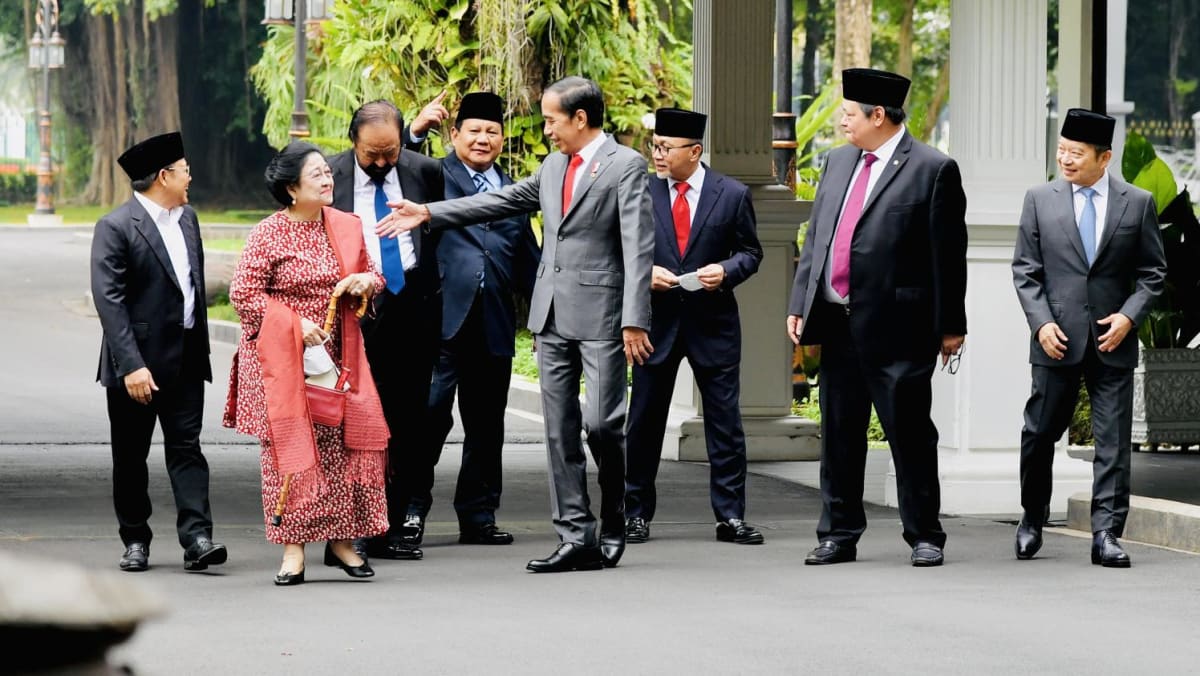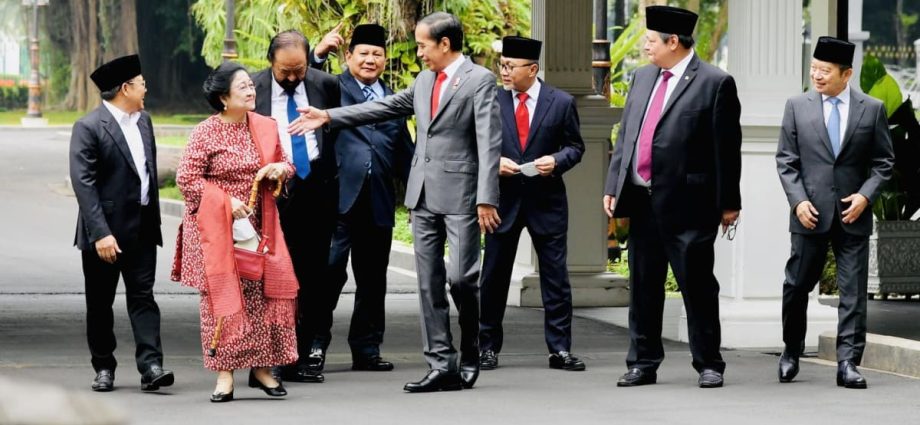
SIGNS OF A GRAND COALITION IN THE WORKS
On Apr 2, Mr Widodo met the leaders of KIB and KKIR in Jakarta. Notably absent from the meeting was Mdm Soekarnoputri, the head of PDI-P, of which Mr Widodo is a member.
Mr Surya Paloh, the head of the fourth biggest parliament party Nasdem, was also not present. While Nasdem is in the current governing coalition, it has backed Mr Baswedan, the former Jakarta governor as its presidential candidate, teaming up with the Democrat Party and Prosperous Justice Party (PKS).
The Democrat Party and PKS are opposition parties, and Nasdem’s move to nominate Mr Baswedan as its presidential candidate is widely regarded as a decision which is not supported by Mr Widodo.
The meeting between KIB, KKIR and Jokowi, as the president is popularly known, came just days after football governing body FIFA stripped Indonesia of the right to stage this year’s Under-20 football World Cup.
The decision came after some protests including by two PDI-P governors, namely Mr Pranowo and Bali’s governor I Wayan Koster, who did not want Israel to participate in the event. They argued that Indonesia has no diplomatic relations with Israel as it supports the Palestinians.
The failure to host the tournament was generally blamed on PDI-P, and Jokowi openly expressed his disappointment in not being able to host the U-20 World Cup. Political observers said at that time that the episode might have strained ties between the Indonesian leader and others in his party.
After the meeting, Mr Subianto of Gerindra said the parties in the KIB coalition as well as in KKIR, share the same vision. He added that they are in support of Jokowi.
“Yes, we have (the same vision). It turns out we have, so we feel we are on the same frequency, we have compatibilities,” said Mr Subianto.
Responding to a reporter’s question about whether KIB and KKIR are compatible in terms of working together, Jokowi replied: “I’m just saying they fit. It’s up to the party leaders or party alliance.”
“For the good of the country, the good of the nation, the good of the people, it would be better if matters can be discussed,” he said.
Political analyst Ray Rangkuti from Jakarta-based think tank Lingkar Madani believes there may be an attempt to form a grand coalition.
“I think there are efforts to form a grand coalition. But of course, it is not easy, and the developments are changing day to day, week to week.
“But it is not given that it (the political process) will be smooth even though it looks like efforts will be made to get there. Because the crucial point is who will be the president and vice president,” Mr Rangkuti noted.
He pointed out that a grand coalition means having bigger campaign machinery to gain votes, but it can only be effective if there is the right presidential candidate.
“Having a big coalition but not having the right figure does not guarantee a win,” Mr Rangkuti stated.

